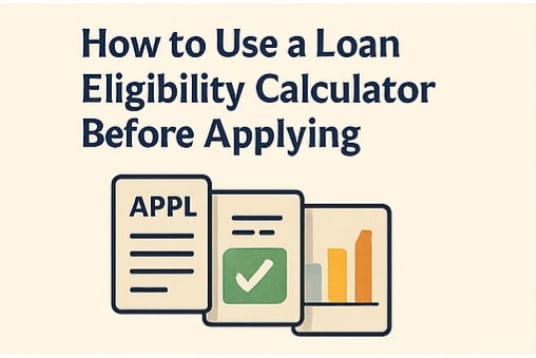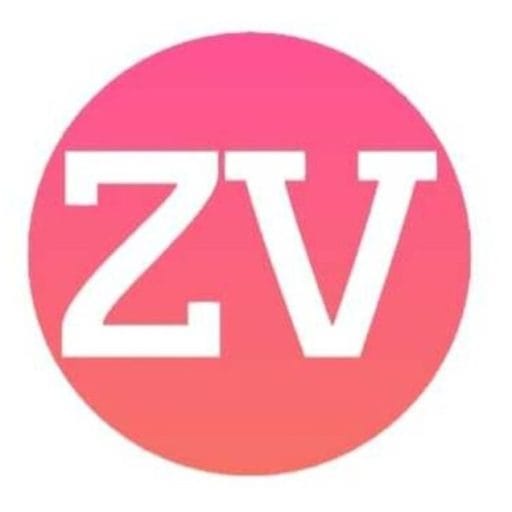So you need a loan — maybe for buying a car, a house, for education, or just a personal loan to manage expenses. But here comes the tricky part:
“Will I even get approved?”
That’s where the Loan Eligibility Calculator comes in.
It’s a smart online tool that helps you figure out how much loan you might qualify for — before you even talk to the bank. It saves time, avoids rejection, and helps you plan better.

In this post, we’ll explain:
- What a loan eligibility calculator is
- What details it needs
- What factors affect your eligibility
- Real examples for salaried, self-employed, and more
Let’s break it down in a way that’s easy to get.
💡 What is a Loan Eligibility Calculator?
A loan eligibility calculator is an online tool that shows you how much loan amount you can get based on:
- Your income
- Your expenses
- Your job type
- Loan interest rate and tenure
It’s like a pre-check before you apply for a loan, so you don’t get a surprise “no” from the lender.
Banks use similar calculations when deciding whether to approve your loan or not.
🛠 Try our Loan Eligibility Calculator
🧾 What Inputs Do You Need?
You don’t need to fill long forms. Most calculators just ask for:
- Monthly income
- Monthly fixed expenses (like rent, EMIs)
- Interest rate (approx.)
- Loan tenure
- Job type (salaried or self-employed)
Based on these, it calculates the maximum loan you can get.
📌 Example:
- Income: ₹50,000/month
- Existing EMIs: ₹5,000
- Tenure: 5 years
- Rate: 11%
→ You may be eligible for a ₹6–7 lakh personal loan.
🏦 Why Use a Loan Eligibility Calculator?
✅ Avoid loan rejection — Know before applying
✅ Plan your EMI — Don’t overborrow
✅ Compare options — Try different amounts and tenures
✅ Faster approvals — Pre-checks increase chances of instant approval
📋 Factors That Affect Your Loan Eligibility
- Monthly Income
Higher income = higher eligibility. But expenses also matter. - Current EMIs/Debts
If you already pay many EMIs, your new loan limit will reduce. - Loan Tenure
Longer tenure = smaller EMI = more affordable = more loan. - Interest Rate
Higher interest = higher EMI = lower eligibility. - Credit Score
Even if not asked in calculator, banks check it later. 750+ is ideal. - Employment Type
Salaried with stable job is more preferred. Self-employed must show consistent income. - Age
Younger people (below 55) are more likely to get loans with longer tenures.
👨💼 Real Examples: Salaried vs Self-Employed vs Student
✅ 1. Salaried Person
- Income: ₹60,000
- EMIs: ₹7,000
- Tenure: 5 years
- Rate: 10.5%
📊 Eligible loan = ~₹7.5 lakh
EMI = ~₹16,000
✅ 2. Self-Employed Business Owner
- Income: ₹80,000
- Business expenses: ₹15,000
- No existing loans
- Tenure: 3 years
- Rate: 12%
📊 Eligible loan = ~₹6.5–7 lakh
Banks may ask for ITR proofs.
✅ 3. Student (with no income)
❌ Not eligible directly. Needs a co-applicant or guarantor (like parent or guardian).
If parent income = ₹45,000
→ Student education loan up to ₹4–6 lakh may be possible
🙅 Common Mistakes People Make
- Putting gross salary instead of net (take-home)
- Ignoring existing EMIs or credit card dues
- Choosing very short tenure, which makes EMI too high
- Assuming 100% of income can be used for loan — banks only allow 40–60% max
- Using incorrect interest rate — always check latest offers
🤔 Is Eligibility = Guaranteed Loan?
Nope.
The calculator gives you an estimate. Final approval depends on:
- Credit score
- Proper documents
- Bank’s internal policies
- Sometimes even city/area
But still, it’s way better to know your chances before applying blindly.
🧠 Pro Tips to Increase Loan Eligibility
✔️ Reduce existing EMIs
✔️ Choose longer tenure
✔️ Improve credit score (pay bills, reduce credit usage)
✔️ Show joint income (spouse or parent)
✔️ Keep income proofs ready (salary slips, ITR, etc.)
✏️ Final Thoughts
Getting a loan isn’t just about needing money — it’s also about proving you can repay it. That’s where a loan eligibility calculator makes your life easy.
It gives you:
- A clear idea of how much you can borrow
- A reality check (can you actually afford it?)
- Confidence before applying
Whether you’re a salaried person, freelancer, student, or business owner — try it first. You might save yourself a rejection and a credit score hit.
